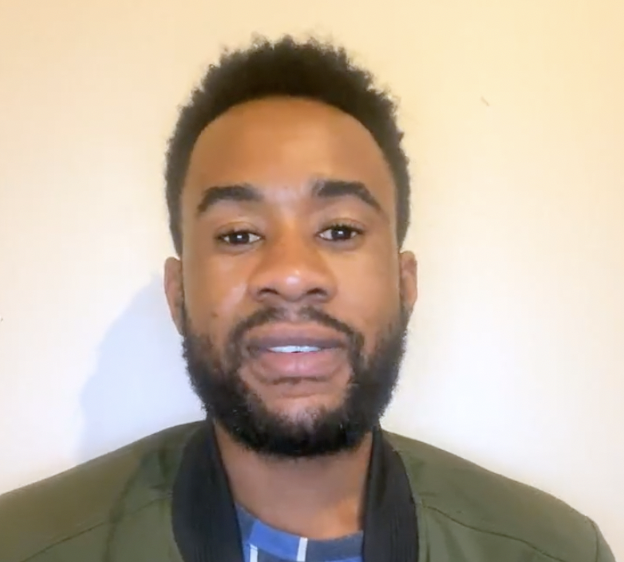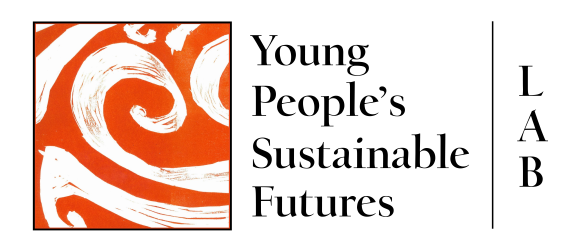
COVID-19 and Disadvantaged Young People’s Education and Employment Aspirations: A Longitudinal Study of Young People’s Transitions in Geelong.
The Young People’s Sustainable Futures Lab is delivering a 3 year project which provides Geelong region stakeholders with an evidence base to foster the education and employment aspirations of young people from disadvantaged backgrounds in the wake of a COVID-19 youth labour market crisis. This evidence is contributing to regional, state, national and international debates about the challenges and opportunities that emerge for young people’s education, training and employment pathways at the convergence of the 6th Mass Extinction and the 4th Industrial Revolution – the convergence ‘between an advanced knowledge economy, which perpetuates patterns of discrimination and exclusion, and the threat of climate change devastation for both human and non-human entities’ (Braidotti 2019).
One of the ways in which we are doing this is by conducting video interviews with a diverse group of young people in Geelong, including many young people who can be identified as marginalised, disengaged or living with historical disadvantage – although what this means, or what the consequences of this might be, cannot be assumed to be either uniform or known in advance. The following story has been co-produced with one of the young people involved in this project.
James is a young man from the Geelong region who spoke with us during 2021 and 2022, about his hopes and aspirations about the future – for the planet, his community, and himself. We tell a version of his story below.
James
In 2021, James was 23 years old and living in Corio. He is fluent in Swahili, Bembe, Chichewa and English. James came to Australia with his family as a refugee from the Democratic Republic of Congo. His family was forced to flee because of the conflicts and civil war that has been happening since 1996. James fled Congo in 2008 with his parents and siblings, and lived in a refugee camp in Malawi until 2011, when their humanitarian visas were granted to move to Australia.
James enjoys playing soccer, watching Netflix with his girlfriend (who he couldn’t see at that time due to the COVID-19 lockdown), and being a role model for his younger brothers and sisters. When James spoke with us he was reflective about his connection to his family and workplace, and appeared grateful for the people and experiences that had shaped him in his life so far. James told us about his life at that moment in 2021:
I am a proud young man, hard worker and I’m very motivated.
I am a second year Apprentice at the refinery down here in Geelong. I got the job last year, which was one of the defining moments of my life. Mostly because of my family – I’m the firstborn of nine kids, which is a bit strange for some people.
I am a happy man – I’ve always been, because little things make me happy.
My family around me makes me happy. I’ve got parents here and my little, younger siblings. They are all here. Which makes me a happy young person. Life-wise, I would say, I am happy.
Reflecting on the challenges that he faced during COVID-19 restrictions and lockdowns, James was disappointed to miss out on social activities, like soccer, that he loves, but was grateful that he was employed:
I’ve been limited and feel very disconnected from all my friends. We used to go out and used to go to the pub and you know, meet friends and do parties and stuff. But now we can’t do all that because we are really limited in that we are trying to get this gone and get vaccinated.
I cannot complain at all, because I know a few of my friends, that were working last year. And they were working before I did, but now that the world has changed and everything has changed, they’re not working anymore.
So that is absolutely different from what we used to know.
James described his migration to Australia as life-changing, and was reflective about the important role played by his parents, and education and employment services in Geelong, in shaping his aspirations for study and work:
My role model would be my dad. I would see my dad wake up every day in the morning. Go to work and try to feed the family.
He had a lot of kids in the camp. Which, it is very, very hard to live in a refugee camp.
But he tried the best he could to feed his family and now he’s looking after us. So that’s my greatest role model in life.
My mum has been there, and she’s been encouraging me through my school. She made sure I understood everything that I did at school. She made sure I was in the right state of mind.
When we came here I just, I wanted to help the community because I understand how it feels like to be at the lowest point of your life.
Because I’ve been there, it’s really bad. It’s not a good feeling. So I thought of doing community services. And then I registered myself with the Gordon TAFE. Until after a few months into doing that, I was like, this is not something I want to do.
You know, I find myself wanting to do more hands-on job because I have previously I had a bit of experience on that field. So I spoke to a friend of mine and he recommended me to join Northern Futures, which I did. And I met this amazing, incredible person, [name removed]. He helped me through all the registration and he sometimes helped me with the interview.
James described his connection to his workplace as a significant part of his life:
One big, beautiful family that has been helping me through all the things that I’ve been doing ..they’ve been building up my confidence – they have helped me a lot into becoming the person I am now.
In response to the COVID-19, James often talked down his own struggles, stating that he ‘cannot complain’, however, he told us:
It’s been very bad, very, very bad.
I’m the only one in the family working now.
My sister was doing some working with kids. But now she can’t do it anymore. She can’t do day care anymore because the kids are not going to school and parents are not going to work.
So, it’s a bit harder when it comes to that, and when we look into COVID-19. My family has been really significantly affected by that.
James also had to take on the responsibility to help his younger siblings with schoolwork and he was hopeful that:
Technologies like social media could be used to amplify the voice of those unheard in our communities and that minorities are being represented well in the parliament.
…where all the community will be integrated and people will be judged based on their capabilities and abilities, rather than gender, and cultural backgrounds
James described his aspirations for the future in terms of achieving ‘the Aussie Dream’. In 5 years time, James imagined himself working as a qualified mechanical fitter, and told us that he aspires to take a diploma-bachelor pathway to become a Mechanical Engineer, after he finishes his apprenticeship:
To help build the nation, because we people have the power to do that.
…as a brother, I’ll be very, very proud, if my younger brother looks up to me, and sees me as their role model. Sees me as someone who goes to work every day, and does the right thing, and tries to improve their lives.
12 months after his first video interview, we reconnected with James. In 2022, James gave us an update on the main events in his life at that moment, and his thoughts and feelings about the future:
So, I’m a third year [apprentice] now and work has been amazing. I’ve worked really hard and I’m still learning a few tricks and stuff.
And, so… me and my partner will be pregnant!
So, she’s a few months in and I’m really excited! So that’s something that has actually changed the way I see things, and it’s made me think of not just myself, but think of a kid that I’m going to have next year. And how to make their life a bit easier than the life that I had, and the life that their grandparents had before coming here to Australia.
As I explained before, I’ve only been here for four years now and I’m going for my citizenship, which is a bit exciting as well. So I’m really glad that I got to this point.
A few more things that I would say is that my younger brother is now 20 years old and he’s coming up into this world and he got a job, so that’s something that has helped me as a person as well.
So there’s about three people now contributing into the family.
James’ story is suggestive of many of the different kinds of challenges and opportunities that different young people encounter in a place like Geelong. Including, the complex personal, social, cultural and economic challenges of migrating to Australia as a refugee, and the financial, education and social responsibilities that many young people take on within their families and communities in Geelong. James’ story illustrates some of the ways in which young people negotiate their hopes and aspirations amidst labour market demands, and, within complex networks including families, workplaces, communities, sporting clubs, TAFE’s, schools, service providers, cultures and environments.
